
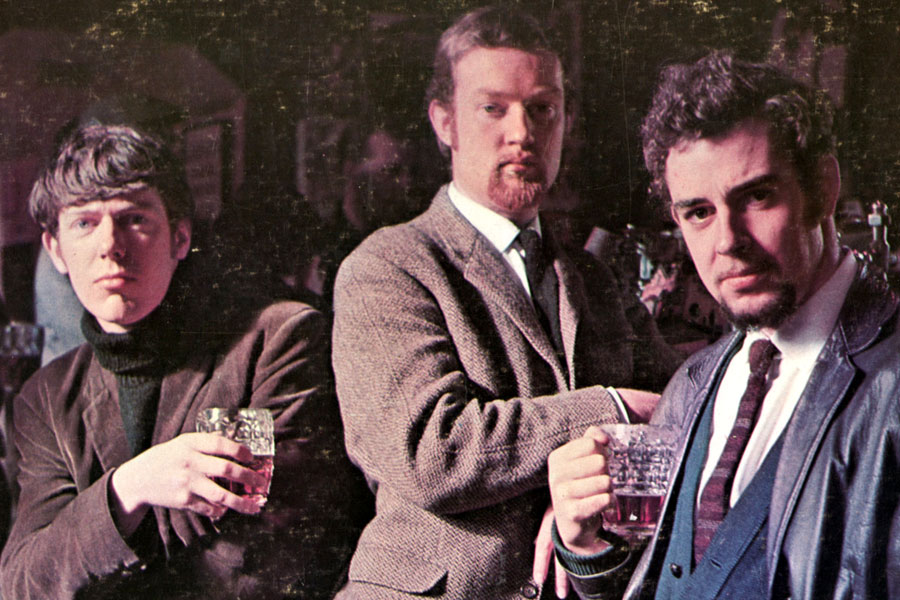
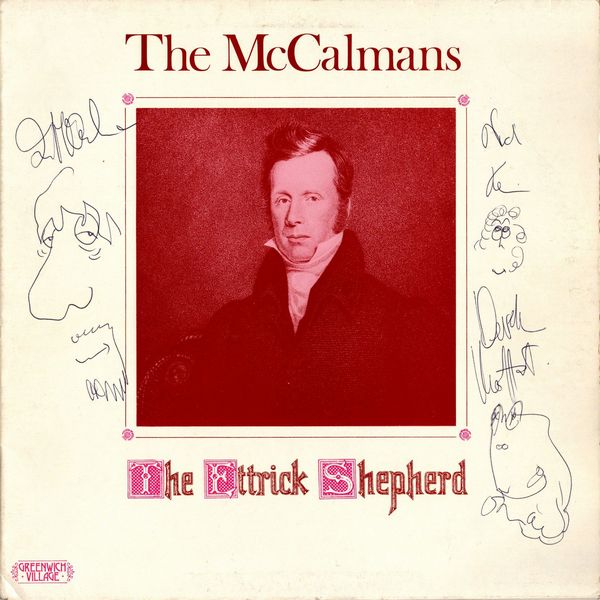 |
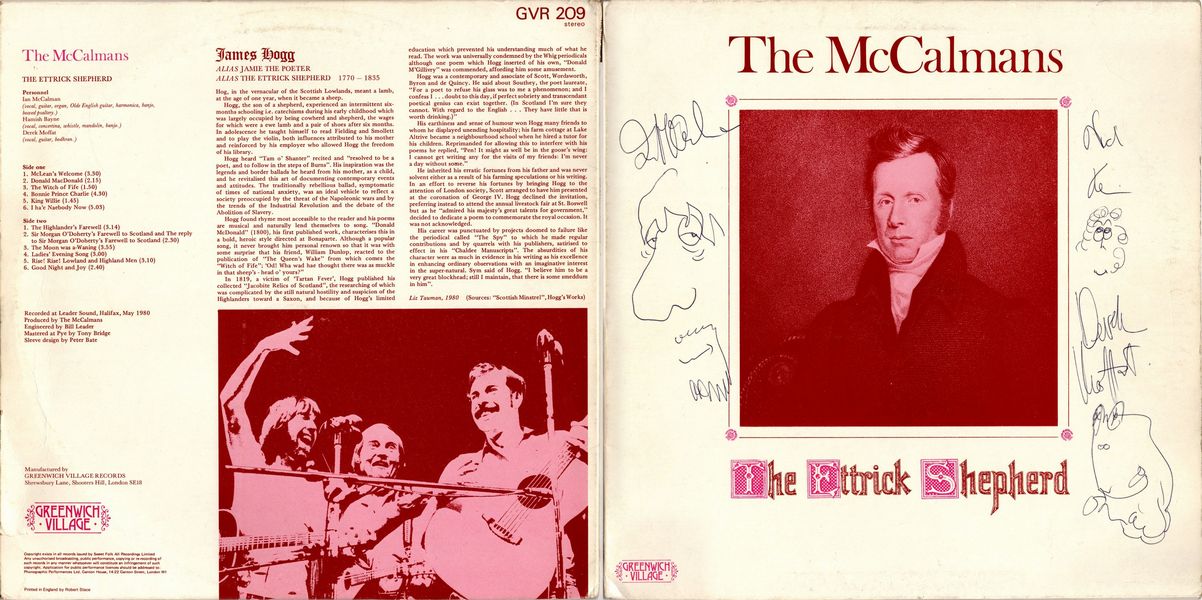
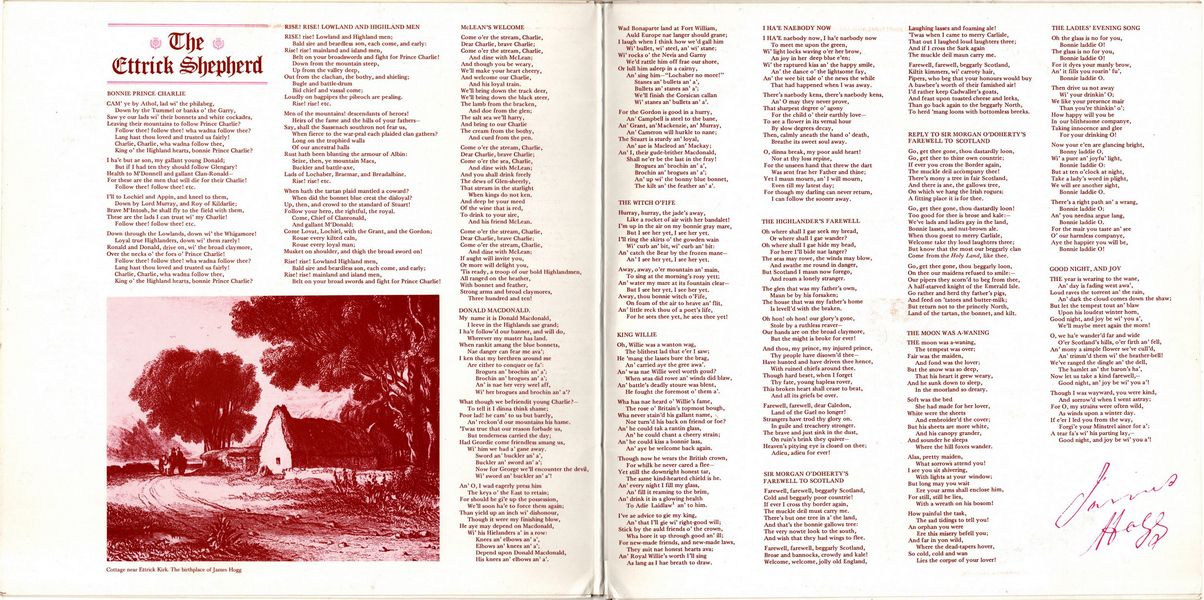
|
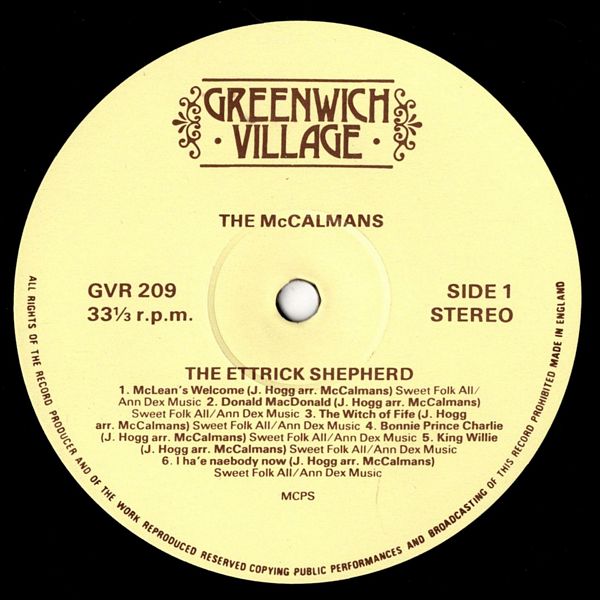
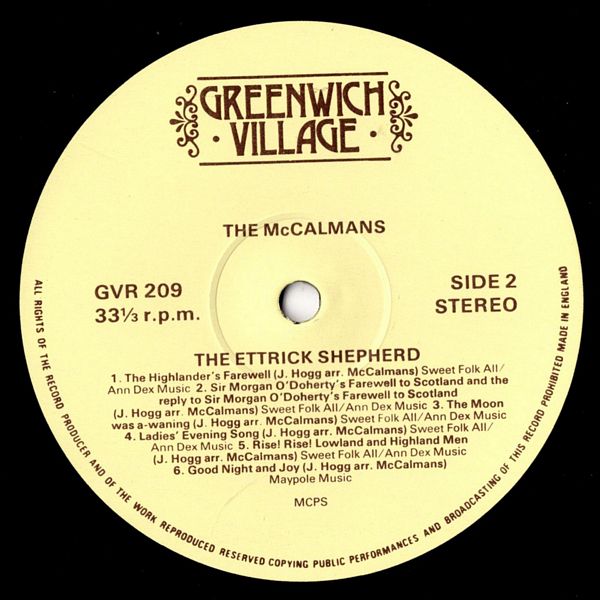
|
Sleeve Notes
James Hogg
ALIAS JAMIE THE POETER
ALIAS THE ETTRICK SHEPHERD 1770 - 1835
Hog, in the vernacular of the Scottish Lowlands, meant a lamb, at the age of one year, when it became a sheep.
Hogg, the son of a shepherd, experienced an intermittent six-months schooling i.e. catechisms during his early childhood which was largely occupied by being cowherd and shepherd, the wages for which were a ewe lamb and a pair of shoes after six months. In adolescence he taught himself to read Fielding and Smollett and to play the violin, both influences attributed to his mother and reinforced by his employer who allowed Hogg the freedom of his library.
Hogg heard "Tam o' Shanter" recited and "resolved to be a poet, and to follow in the steps of Burns". His inspiration was the legends and border ballads he heard from his mother, as a child, and he revitalised this art of documenting contemporary events and attitudes. The traditionally rebellious ballad, symptomatic of times of national anxiety, was an ideal vehicle to reflect a society preoccupied by the threat of the Napoleonic wars and by the trends of the Industrial Revolution and the debate of the Abolition of Slavery.
Hogg found rhyme most accessible to the reader and his poems are musical and naturally lend themselves to song. "Donald McDonald" (1800), his first published work, characterises this in a bold, heroic style directed at Bonaparte. Although a popular song, it never brought him personal renown so that it was with some surprise that his friend, William Dunlop, reacted to the publication of "The Queen's Wake" from which comes the "Witch of Fife" 'Od! Wha wad hae thought there was as muckle in that sheep's - head o' yours?"
In 1819, a victim of 'Tartan Fever', Hogg published his collected "Jacobite Relics of Scotland", the researching of which was complicated by the still natural hostility and suspicion of the Highlanders toward a Saxon, and because of Hogg's limited education which prevented his understanding much of what he read. The work was universally condemned by the Whig periodicals although one poem which Hogg inserted of his own, "Donald M'Gillivry" was commended, affording him some amusement.
Hogg was a contemporary and associate of Scott, Wordsworth, Byron and de Quincy. He said about Southey, the poet laureate, "For a poet to refuse his glass was to me a phenomenon; and I confess I ... doubt to this day, if perfect sobriety and transcendant poetical genius can exist together. (In Scotland I'm sure they cannot. With regard to the English…They have little that is worth drinking.)"
His earthiness and sense of humour won Hogg many friends to whom he displayed unending hospitality; his farm cottage at Lake Altrive became a neighbourhood school when he hired a tutor for his children. Reprimanded for allowing this to interfere with his poems he replied, "Pen! It might as well be in the goose's wing: I cannot get writing any for the visits of my friends: I'm never a day without some.
He inherited his erratic fortunes from his father and was never solvent either as a result of his farming speculations or his writing. In an effort to reverse his fortunes by bringing Hogg to the attention of London society, Scott arranged to have him presented at the coronation of George IV. Hogg declined the invitation, preferring instead to attend the annual livestock fair at St. Boswell but as he "admired his majesty's great talents for government," decided to dedicate a poem to commemorate the royal occasion. It was not acknowledged.
His career was punctuated by projects doomed to failure like the periodical called "The Spy" to which he made regular contributions and by quarrels with his publishers, satirised to effect in his "Chaldee Manuscripts". The absurdities of his character were as much in evidence in his writing as his excellence in enhancing ordinary observations with an imaginative interest in the super-natural. Sym said of Hogg. "I believe him to be a very great blockhead; still I maintain, that there is some smeddum in him".
Liz Tauman, 1980 (Sources: "Scottish Minstrel", Hogg's Works)